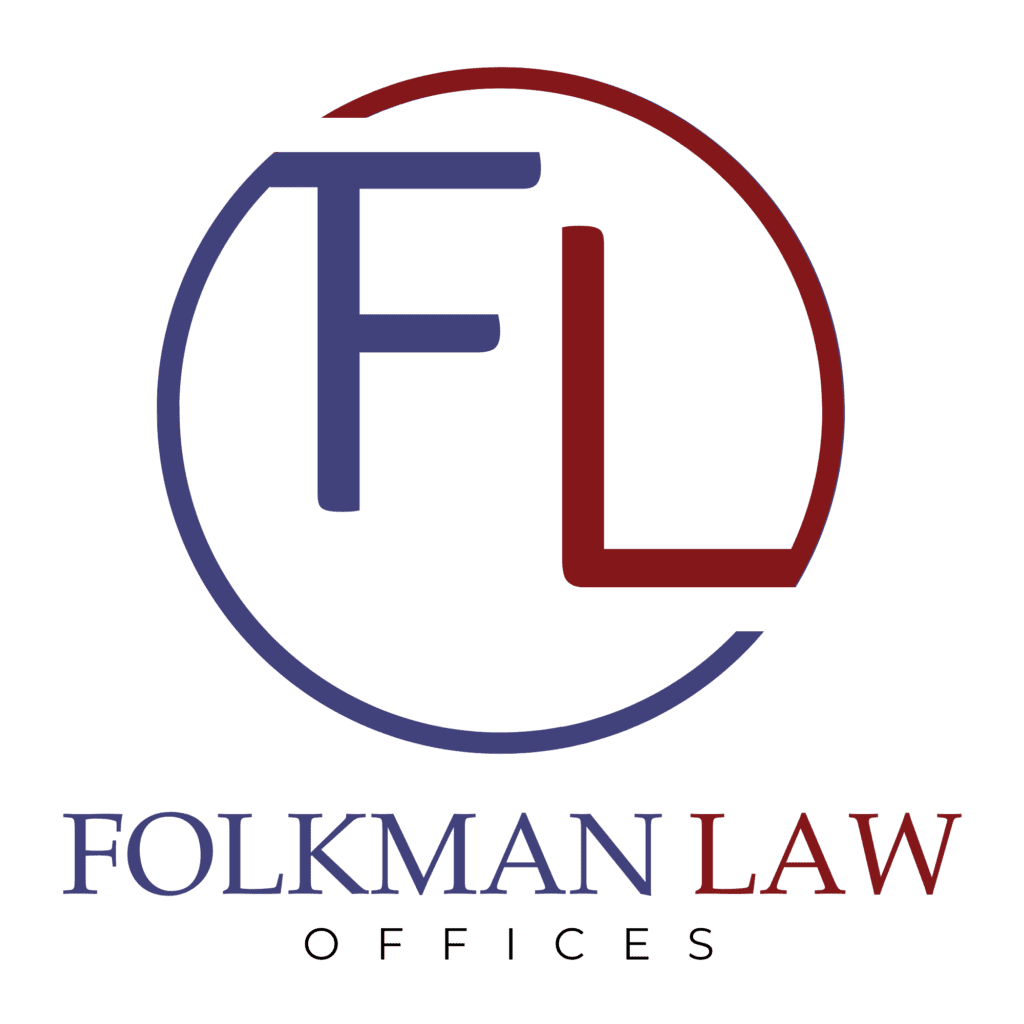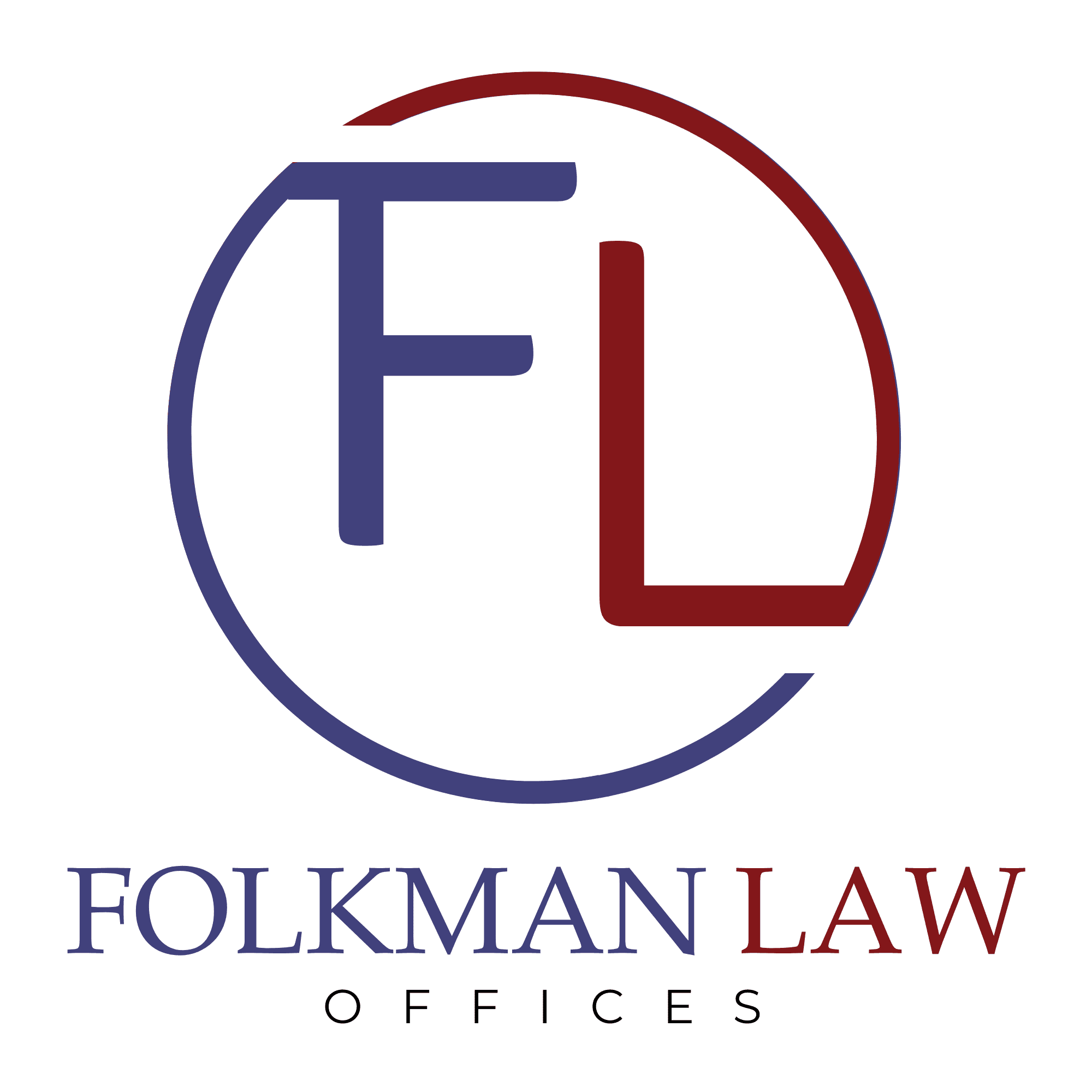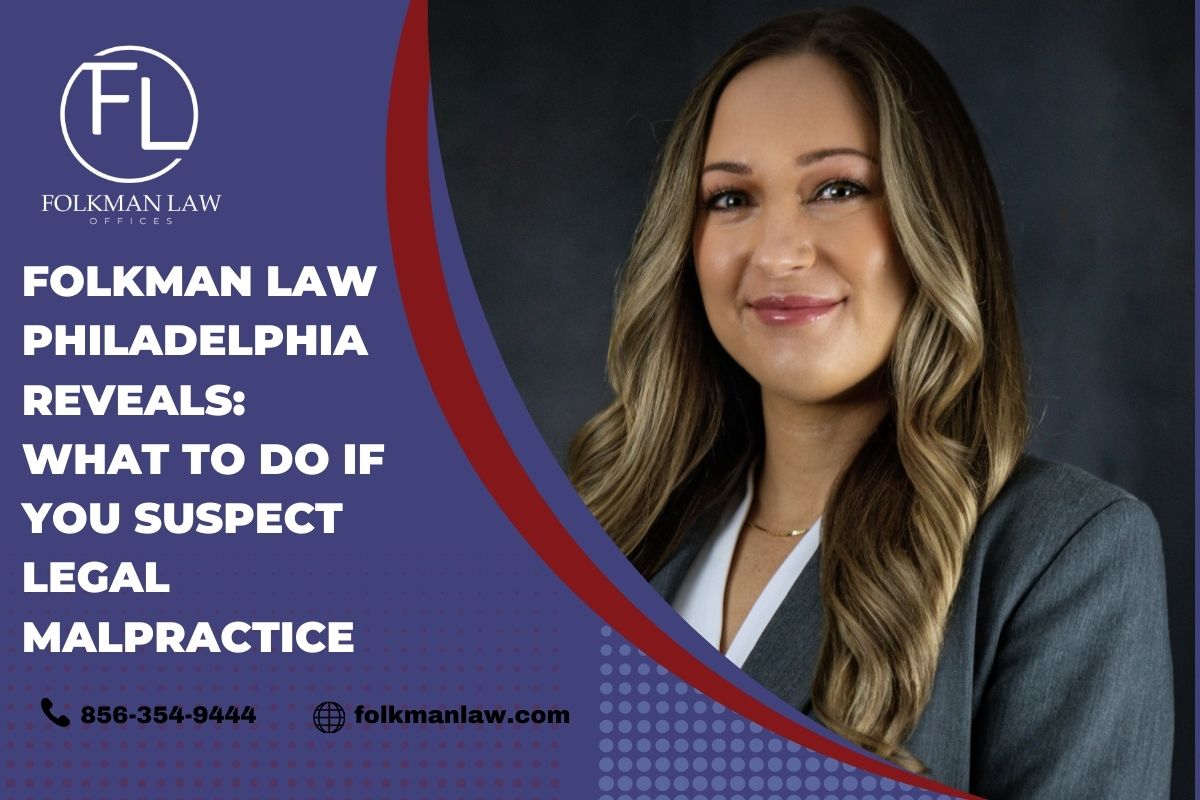
Legal Malpractice and Its Consequences
Legal malpractice occurs when an attorney fails to provide competent representation to a client, causing harm or damage. It can stem from various issues, including but not limited to negligence, breach of fiduciary duty, or breach of contract. Identifying such malpractice is critical for maintaining the integrity of the legal profession and safeguarding the interests of clients who trust legal counsel.
The consequences of legal malpractice can be significant for all parties involved. For the client, the ramifications may include:
- Financial loss due to inadequate representation.
- Negative outcome in their legal matter due to improper advice.
- Loss of opportunity, where improper handling of a case may result in missed deadlines, such as statutes of limitations, which can preclude a client from filing a lawsuit or claiming a legal right.
- The breach of trust between an attorney and a client can cause emotional distress, especially in sensitive cases involving personal matters.
meanwhile, for the attorney, the consequences of malpractice can be damaging both professionally and personally:
- Financial liability through repayment of damages to the client or penalties imposed by the court.
- Damage to reputation, which can hinder future business prospects and professional relationships.
- Potential disciplinary action by the state bar association, ranging from a reprimand to disbarment, depends upon the malpractice’s severity.
Understanding the complexities of legal malpractice is crucial for both clients and attorneys. It emphasizes the high level of responsibility shouldered by legal professionals and the serious nature of the duty of care owed to their clients.
Understanding Legal Malpractice: Definitions and Dynamics
Legal malpractice occurs when an attorney fails to provide services that meet the standard of professional care expected within the legal community and results in harm to the client. Grasping the legal malpractice concept involves dissecting its definition and its intricate dynamics.
- Breach of Duty: To prove legal malpractice, it must be shown that an attorney breached the duty of care owed to their client. This means the attorney’s conduct fell below the standard of care expected within the legal practice.
- Causation: The client must demonstrate a direct causal link between the attorney’s negligence and the damage suffered. It’s not enough to prove the attorney erred; the error must have caused actual harm.
- Damages: These are the losses the client sustains due to the attorney’s negligence, which could be financial, such as losing a case that should have been won, or non-economic, such as emotional distress.
Other dynamics include:
- Statute of Limitations: There is a limited time to file a legal malpractice claim. This period varies from state to state.
- Expert Testimony: Expert witness testimony is often crucial in establishing the standard of care and how the attorney deviated from this standard.
Understanding these components is fundamental for clients who believe they have been the victims of legal malpractice. Proving a claim requires a robust demonstration of these elements, which is why the role of a knowledgeable legal malpractice attorney, like those at Folkman Law in Philadelphia, is critical in evaluating and pursuing such cases.
Sign 1: Your Attorney Misses Important Deadlines
In the realm of law, adhering to deadlines is of paramount importance. When your attorney fails to meet court-mandated deadlines, it could be a telltale sign of legal malpractice. Such oversights can have dire consequences, ranging from your case being dismissed to losing the opportunity to present critical evidence.
Missed deadlines can occur in numerous ways, for instance:
- Failure to timely file paperwork: Legal proceedings are bound by strict protocols, whereby documents such as pleadings, motions, discovery answers, and appeals must be filed within specific timelines.
- Neglecting statute of limitations: Every legal claim is subject to a statute of limitations, the finite period within which you must initiate legal action. Ignoring these deadlines can completely extinguish your right to seek legal recourse.
- Overlooking discovery deadlines: Each party must exchange relevant information during the discovery phase. Missing these deadlines can impede your attorney’s ability to construct a robust case and may severely weaken your position.
If you observe your attorney consistently falling behind on important deadlines, it is essential to address the issue promptly. Delayed action can worsen the situation, potentially sabotaging the case. Moreover:
- You may inquire directly with your attorney for explanations about missed deadlines.
- Document any instances of missed deadlines and the explanations provided.
- Follow up with your lawyer via email to create a paper trail that can later be used as evidence in your legal malpractice claim.
Ultimately, if your attorney’s performance continues to be below the acceptable standard of professional conduct and such negligence harms your case, it may be time to contact a legal malpractice lawyer to evaluate the potential for a malpractice claim. Accountability is key; addressing these concerns with your legal representative is the first step in safeguarding your legal rights and interests.
Sign 2: Poor Communication and Lack of Transparency
When legal professionals shirk their duty to communicate clearly and transparently with their clients, it may be a warning sign of legal malpractice. The attorneys at Folkman Law in Philadelphia understand the importance of this professional cornerstone and advise clients to be vigilant for the following indications:
- Inconsistent Updates: Clients should expect timely updates about changes or developments in their cases. A lawyer’s failure to provide regular, comprehensible briefings could signify neglect or mismanagement.
- Unanswered Calls and Emails: It’s reasonable for attorneys to need some time to respond to inquiries due to their busy schedules. However, consistently ignored communications hint at a deeper problem, mainly when urgent matters are at stake.
- Evasive Responses: A lawyer should be willing to answer questions and explain processes clearly. If, instead, your attorney offers vague, noncommittal, or evasive answers, it may be a red flag.
- Withholding Documents: Clients can access their case files and relevant documents at any time. An attorney’s reluctance to share case documentation on request is unprofessional and suspicious.
- Changing Fees and Costs: Transparency about legal fees and expenses is crucial. Unexplained increases or hidden costs can be indications of unethical behavior.
Folkman Law emphasizes that attorneys should facilitate a transparent, open communication channel with their clients. This nurtures trust and ensures that clients are informed and involved in decision-making. When communication is subpar and transparency is missing, the risk of legal malpractice rises, and clients are encouraged to confront the issue directly or seek counsel from a qualified legal malpractice attorney.
Sign 3: Conflict of Interest: When Your Lawyer's Motives Are Questioned
A conflict of interest is a critical red flag suggesting that your attorney might not be prioritizing your best interests. It occurs when a lawyer has competing professional or personal interests, which could potentially influence their judgment or loyalty to your case. Recognize this infringement of the legal ethical code by observing whether your lawyer or law firm:
- Represents another party with adverse interests to your own.
- Has a personal stake in the outcome of your case.
- Receives benefits or compensations from the other party involved in your case.
- Fails to disclose any possible conflicts of interest before accepting your case or immediately upon becoming aware of them.
These situations compromise the attorney’s ability to represent you with undivided loyalty. Lawyers should provide a standard of care free from conflicting interests to ensure that their actions and decisions are solely for the benefit of their clients. If you observe any behavior that suggests a conflict of interest, it can lead to biased advice or an unfair settlement, constituting legal malpractice.
It’s critical to address the issue with your lawyer directly. If the response is lacking or unsatisfactory, it may be time to:
- Document all related communications and actions in writing, preferably through an email to the lawyer or law firm.
- Seek a second opinion from an uninvolved legal professional.
- Report the concern to the appropriate ethics committee or licensing board.
- Consider initiating a legal malpractice claim with the support of a knowledgeable attorney.
An attorney from a reputable law firm like Folkman Law can guide you through evaluating the evidence of a potential conflict of interest and give advice on proper actions to protect your rights and interests.
Sign 4: Inadequate Knowledge or Preparation by Your Attorney
Regarding legal representation, a fundamental expectation is that your attorney will have a robust grasp of the relevant laws and is sufficiently prepared to handle your case. Unfortunately, there are instances where a lawyer may neglect to meet these critical benchmarks, which can indicate legal malpractice.
To identify whether your attorney’s level of knowledge and preparation is below par, consider the following indicators:
- Lack of Familiarity with Pertinent Laws: If your attorney regularly appears bewildered or unsure about the applicable legal principles for your case, this is a significant warning sign.
- Inadequate Investigation: Proper case handling requires attentive and thorough investigation. An attorney who fails to investigate or ignores crucial evidence can compromise your position.
- Poor Documentation: Legal matters hinge on the accuracy of documentation. Substandard or incomplete paperwork can point to your attorney’s insufficient preparation.
- Erratic Strategy Changes: While adaptability is essential, frequent, unjustified changes in case strategy might suggest inadequate planning or understanding of the case.
- Missed Deadlines: Missing filing deadlines clearly shows poor organization and preparation. This can lead to dismissed claims or other adverse outcomes.
- Insufficient Resources: At times, a lack of resources, such as adequate staff or access to expert witnesses, may lead an attorney to cut corners in case preparation.
If these signs are apparent and you’re concerned about the competency of your legal counsel, act promptly. Seeking a second opinion from a reputable law firm, such as Folkman Law in Philadelphia, can clarify whether your case is being mishandled and what steps you can take to rectify the situation. Remember, an attorney’s inadequate knowledge or preparation not only undermines your trust but may also have severe repercussions for the outcome of your legal matter.
Sign 5: Overcharging or Unethical Billing Practices
Legal billing should be transparent and fair, reflecting the actual amount of work done on a client’s case. When you receive legal services and are billed on an hourly basis (not a contingency fee), you’re entitled to an itemized bill that details the hours worked and specific tasks completed. However, if you notice any of the following issues, it may be an indication of overcharging or unethical billing practices:
- Charges for Time Not Worked: Review your bills for discrepancies between the hours billed and the work you believe was done.
- Double Billing: This occurs when a lawyer bills two clients for the same hours worked or bills you for the time spent on another case.
- Unusual Expenses: Be cautious if you see charges for undefined or vague expenses outside your case.
- Increased Rates Without Notice: If your attorney raises their rates without informing you, this could be unethical.
- Non-Refundable Retainers: While retainers are common, they should be applied to actual work. Question any retainer labeled “non-refundable,” primarily if the attorney has not performed any work.
- Billing for Overheads as Disbursements: Costs for routine office overhead, such as rent, office supplies, or local telephone charges, generally should not be billed to clients.
If you receive legal services under a contingency fee agreement, you should be provided with a final accounting of your case. When your lawsuit resolves, your lawyer should show you a breakdown of all the litigation costs, such as: court filing fees, process server fees, expert witness fees, fees for obtaining copies of your records to support your case, etc. Your lawyer should also explain any liens against your recovery, as well as any related outstanding bills that should be paid out of your recovery.
If you identify these billing irregularities, promptly addressing your concerns with your attorney is critical. Request a detailed explanation for any charges that appear unjustified. If the explanation could be more satisfactory or the billing practices continue, consider seeking a second opinion from another attorney or contacting professional legal organizations for guidance.
Remember that overcharging may not always be intentional, but whether by mistake or design, it is your right to challenge it and seek rectification. Remember, you should expect and demand integrity in legal billing practices, and if these expectations are not met, it could constitute legal malpractice.
Exploring the Legal Remedies Available for Malpractice Victims
When individuals become victims of legal malpractice, several options exist for seeking redress and holding their lawyers accountable for professional negligence or misconduct. Here is an exploration of the legal remedies available:
- Civil Lawsuits for Damages: Victims can file a civil lawsuit against the attorney or law firm responsible for malpractice. In this lawsuit, the primary aim is to recover financial compensation that represents the losses sustained due to the legal malpractice. This typically includes costs such as lost claims, additional legal fees, and sometimes punitive damages intended to punish particularly egregious conduct.
- Fee Dispute Resolution: If the malpractice involves disputes over attorney fees, victims may resort to fee dispute resolution programs offered by many state bar associations. These programs aim to mediate issues between attorneys and clients regarding fees, often in a less formal setting than a courtroom.
- Filing a Bar Complaint: Clients can file a complaint with the state’s bar association. The bar can impose disciplinary actions upon the attorney, ranging from reprimands to suspension or disbarment, depending on the severity of the misconduct.
- Settlement Negotiations: In some cases, malpractice claims can be resolved through settlement outside court. This can be a quicker and less costly avenue for redress. Both parties may agree to compensate the victim without needing a lengthy trial process.
When seeking any legal remedy for malpractice, it’s crucial to work with an experienced malpractice attorney, like those at Folkman Law. They can provide guidance on the likely success of a claim, navigate complex legal processes, and strive to secure appropriate compensation for the harm sustained. Malpractice victims need to act swiftly, as there are statutes of limitations governing legal malpractice claims that restrict the timeframe within which a claim can be filed.
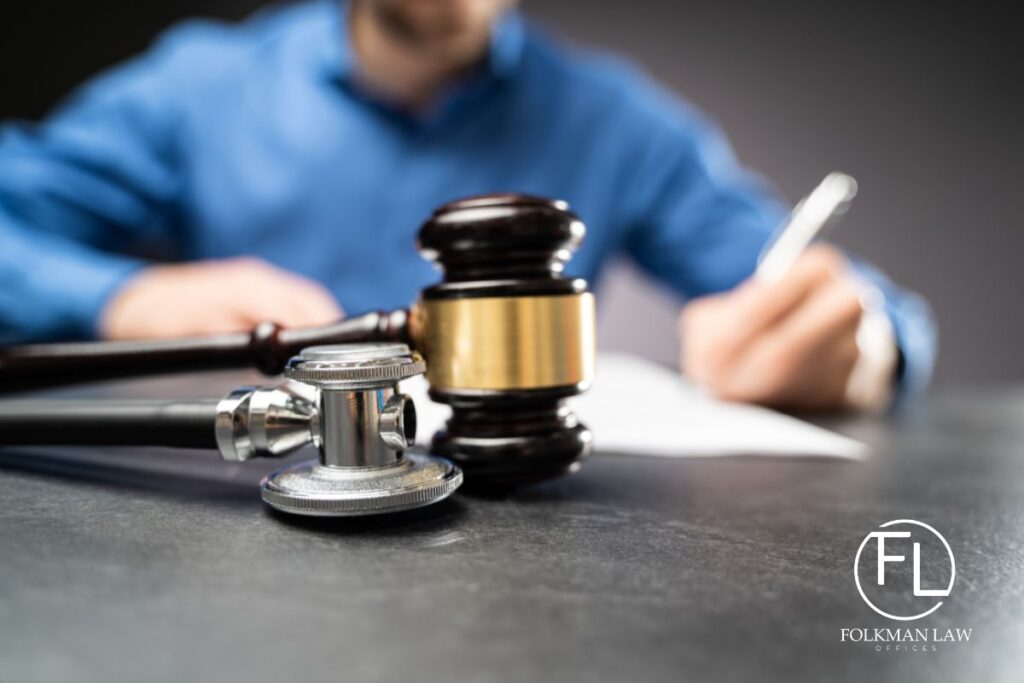

The Role of Folkman Law in Advocating for Victims of Legal Malpractice
When individuals or businesses fall victim to legal malpractice, they often feel betrayed and unsure where to turn. Folkman Law steps in to fill this critical role, providing a steadfast advocate for those who have experienced substandard legal representation.
As a firm, Folkman Law:
- Assesses the Case: They begin by meticulously reviewing the client’s claim details to determine the malpractice’s existence and extent. This often involves examining whether the previous attorney’s actions deviated from the acceptable standards of legal practice.
- Provides Legal Competence: Legal malpractice cases require a knowledgeable understanding of the law and legal ethics. Folkman Law equips victims with seasoned professionals adept at handling these complex cases and familiar with the intricacies of Pennsylvania’s legal system.
- Initiates Litigation: If Folkman Law concludes that malpractice occurred, they take the necessary legal steps. This means initiating litigation to hold the negligent attorney accountable.
- Pursues Fair Compensation: The firm’s goal is not just to expose malpractice but to secure appropriate compensation for the damages incurred by their clients. This could include recovery of financial losses, reinstatement of rights, and compensation for emotional distress.
With Folkman Law at the helm, victims of legal malpractice receive comprehensive services, from the initial case evaluation to the final verdict or settlement. The firm strives to restore clients’ faith in the justice system through diligent representation and a commitment to achieving just outcomes for those wronged by their legal counsel.
How to Protect Yourself from Potential Legal Malpractice
To safeguard against potential legal malpractice, individuals must be proactive and vigilant in their interactions with legal professionals. Here are several strategies:
- Thoroughly Vet Your Attorney: Before hiring a lawyer, conduct comprehensive research. Verify their background, experience, and track record. Seek out reviews.
- Understand Their Competence: Ensure that the attorney you select is knowledgeable in the relevant area of law. A mismatch between your legal issue and the attorney’s practice can lead to subpar advice or representation.
- Clear Communication: Maintain open lines of communication with your lawyer. Ensure that you fully comprehend the legal strategies and actions they propose. Feel free to ask questions and request explanations for anything unclear.
- Detailed Documentation: Keep meticulous records of all interactions with your attorney, including correspondence, agreements, court documents, and advice provided. Documenting these details will be invaluable if you need to establish a legal malpractice case.
- Stay Informed and Involved: Take an active role in your case. Stay informed about the progress and understand the steps being taken on your behalf. This will not only help you monitor your lawyer’s performance but also enable you to make informed decisions throughout the process.
- Seek a Second Opinion: If you have doubts about your attorney’s advice or strategy, consider getting a second opinion from another legal professional. This can provide valuable perspective and either confirm or challenge the approach being taken.
By incorporating these strategies, individuals can create a strong line of defense against the potential for legal malpractice, safeguarding their interests and ensuring they receive the competent legal representation they are entitled to.
The Importance of Seeking a Second Opinion on Your Legal Matters
The acumen to solicit a second opinion on legal matters is paramount in the contextual framework of legal proceedings and advocacy. This principle holds greater weight when an individual harbors apprehensions regarding handling their case, potentially pointing to legal malpractice. When stakes are high, and the intricacies of the law can direct the outcome, a secondary consultation serves as a prudent strategy with multifarious benefits.
- Risk Mitigation: Legal matters are often complex, and outcomes are uncertain. Obtaining a second opinion can mitigate risks by ensuring that the strategy and advice provided are sound and align with legal standards.
- Comprehensive Review: A fresh pair of eyes can offer a comprehensive review of the case, uncovering any oversights or alternative legal strategies that might have been missed.
- Confirmation of Strategy: The affirmation or challenge of the original legal approach can instill confidence or prompt reconsideration, serving the client’s best interest.
- Detection of Malpractice: If legal malpractice is suspected, a second opinion can detect discrepancies and validate concerns, which is crucial for subsequent remedial actions.
In essence, soliciting a second viewpoint embodies due diligence. It empowers clients, reinforcing their autonomy over their legal journey. With the potential for immense impact on one’s life and rights, Folkman Law asserts that securing a second legal opinion is not a luxury but a necessity – a safeguard against the formidable consequences of fallible legal representation
Empowerment Through Awareness and Competent Legal Support
Facing legal malpractice can be an intensely disconcerting experience. It undermines trust in individual practitioners and erodes the legal system’s confidence. Empowerment against such violations starts with raising awareness about clients’ rights and legal professionals’ responsibilities. Individuals suspecting legal malpractice should arm themselves with knowledge regarding what constitutes professional misconduct and understand the avenues available for recourse.
It’s crucial to recognize that allegations of legal malpractice are complex and often challenging to prove. They require a substantive understanding of the law and a strategic approach to litigation. This is where knowledgeable legal support becomes invaluable. An experienced legal malpractice attorney can offer:
- Insightful analysis of the original case and the lawyer’s actions in question.
- Clear articulation of how these actions deviate from the standards of practice.
- Assessment of the damages incurred due to the malpractice.
- Formulation of a robust legal strategy aimed at securing restitution.
At Folkman Law in Philadelphia, clients are not just gaining a legal representative but entering into a partnership with fierce advocates dedicated to restoring justice. The firm’s lawyers guide clients through every step of the process, from initial consultation to resolution, asserting their rights and seeking to rectify the wrongs they have endured. In doing so, they serve individual clients and contribute to the integrity of the legal profession. Reaching out to experienced legal malpractice lawyers like those at Folkman Law in Philadelphia is an essential step in transforming from victims of legal malpractice to empowered claimants, seeking and often achieving the justice they deserve.
